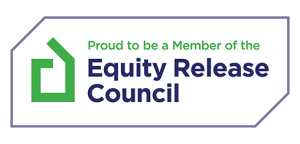In the lead up to the 2021 Budget speech on 3rd March 2021, there were fears that the Chancellor, Rishi Sunak, would increase taxes to start to tackle the enormous government debt created in attempting to support the country and economy during the pandemic. However, some would say he took a somewhat softer approach, sticking to the pre-Election promise not to increase the rates of income tax, national insurance or VAT and instead opting for a freeze on allowances to raise extra revenue.
Income tax – the personal allowance will increase to £12,570 from 6th April 2021 and the basic rate band will increase to £37,700. This means that the higher rate threshold of income tax will increase to £50,270. However, these thresholds will then remain frozen until the end of the 2025/26 tax year.
Capital gains tax – the current annual exemption of £12,300 will remain in place and frozen until the end of 2025/26. The rates of capital gains tax remain unchanged and were not aligned with income tax as feared.
Inheritance tax – both the nil rate band of £325,000 and the residence nil rate band of £175,000 have been frozen since 2009 and were due to increase from the next tax year with inflation. However, the chancellor has opted to continue the freeze these thresholds for the next five years.
Savings and Investments – the ISA subscription limit will remain unchanged at £20,000 as will the Junior ISA/Child Trust Fund at £9,000.
Pensions – the lifetime allowance will remain frozen at £1,073,100 until April 2026 but the current pension contribution tax relief system remains unchanged, allowing contributions up to £40,000 p.a. depending on circumstances and earnings.
Corporation tax – the Chancellor announced that corporation tax would rise to 25% for some businesses from 1st April 2023.
However, small businesses with profits up to £50,000, will continue to pay corporation tax at 19%. The rate of tax will be tapered upwards on profits between £50,000 and £250,000 where the full 25% tax rate will apply.
Corona Virus Job Retention Scheme (Furlough) – has been extended until 30th September 2021 and the level of grant available to employers under the scheme will stay the same until 30th June 2021. From 1st July 2021, the government contribution will be reduced and employers will need to contribute towards the cost of furloughed employees’ wages. To be eligible, they must continue to pay their furloughed employees 80% of their wages, up to a cap of £2,500 per month for the time they spend on furlough.
Stamp Duty – the stamp duty “holiday” has been extended until 30th June 2021 with the stamp duty threshold for residential property of £500,000 being maintained until this point. It will then reduce to £250,000 from 1st July 2021 before returning to £125,000 on 1st October 2021.
Although frozen allowances can seem a bit less painful as opposed to rises in tax rates, this can still have an impact upon your financial plans. Please contact us if you would like to discuss how the Budget may have impacted you. We’d love to hear from you.




Leave A Comment